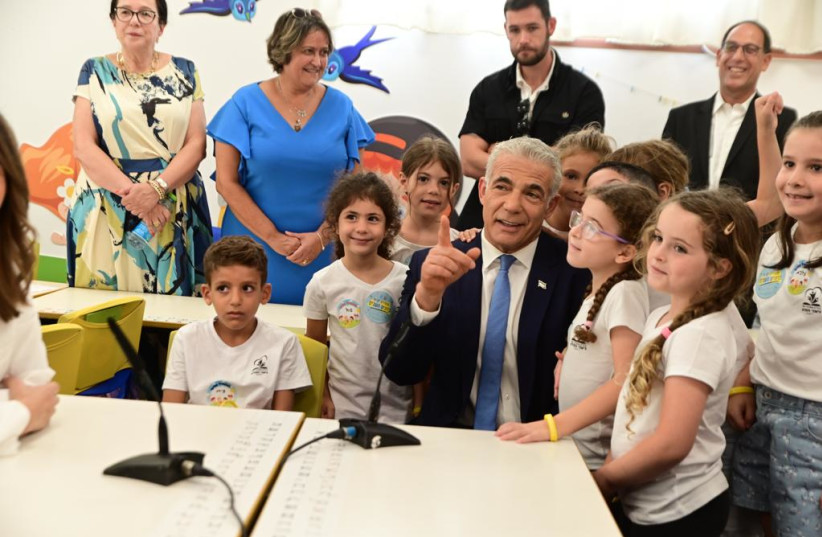Routine is important for parents and kids since it gives our days a certain schedule. Yet, returning to routine after a long vacation can be hard.
Hundreds of thousands of children and parents are about to face the long-awaited return to a set daily routine as summer comes to an end. Some young kids will say "Don't go! Don't leave me alone" and cry as they return to school while others will adjust easily but for everyone, the return to routine is exciting and has various challenges.
So how can you return peacefully to the routine of school and/or kindergarten? We can prepare for the challenge in three separate stages.
1. Talk to yourself (inner speech)
In order for our kids to readily adapt to their frameworks, we need to know how the return to routine makes us feel. Tense? Pride? Fear? All of these? Maybe we feel guilty that we’re tired of being within a framework?

It’s important to listen to our feelings and not belittle them. These complex emotions exist within us and awareness of them is important so we won’t be triggered by them and know why we behave the way we do.
Also, what are our views on school? Do we trust teachers? Which subjects are more important to us, and which ones are less? How do we remember ourselves as students? Accepted or rejected? Through questions, we clarify what we think and feel about our child's framework, what we expect to happen and what we fear.
It's a complex process that reminds us of our school years. Record your answers. This process is necessary so that we can give our child confidence to adapt to school. Once you know your own thoughts about kindergarten or school, talk to your partner. Hopefully, they have clarity on these issues.
2. Talking to your partner
Now each of the parents presents their opinions. Talk about how you think your kids will do in kindergarten/school, what to watch out for, when you might talk with the teacher, how you imagine the child during recess, and whether or not your older kids should phone you during breaks.
List your agreements and differences. You don't need to agree about everything, but it’s very useful to agree on how to approach problems your kids might have. In many cases, our kids know the differences between parents and will challenge them.
That’s why it’s good to agree on as many issues as possible. At the end of this stage, you should be confident with the school setting. If not, speak with the teacher, counselor or other professional and share your concerns and questions.
3. Talking to the child
This is the shortest part of the process because most of the work has already been done. First, start by asking your kids about their schools and listen to their expectations and concerns without offering solutions at this stage; we’ll just show that we’re listening and realizing what they want to happen, and not, in the upcoming school year.
After, share your thoughts about school: excitement, anticipation and one or two concerns with potential solutions. Get excited, laugh and get close to your children's experience. Many years have passed since you were in elementary school but the experiences shaped who you are today. Connect with them.
End the conversation with a message of confidence and love. Be positive that the framework and the team will help your kids develop, trust that your kids will develop and that you’ll support them. Remember that every problem usually has more than one solution.
The adaptation process is also difficult for us parents. Even with all the "craziness" of the end of August without summer camps, we can be a bit apprehensive about dropping off our treasures, even the ones in high school.
Eyal Cohen is a clinical psychologist and lecturer in developmental psychology at the Tel Aviv-Yafo Academy.
